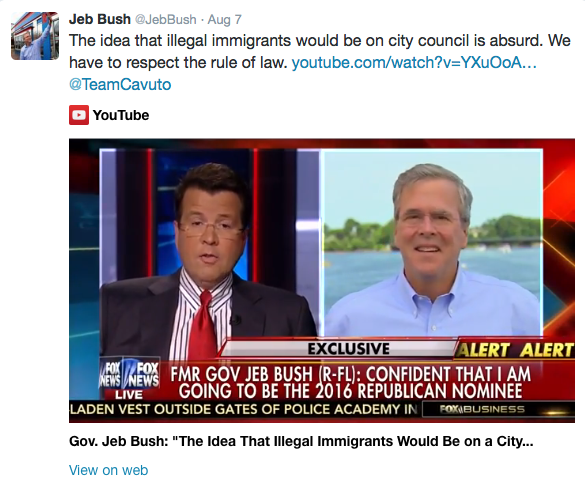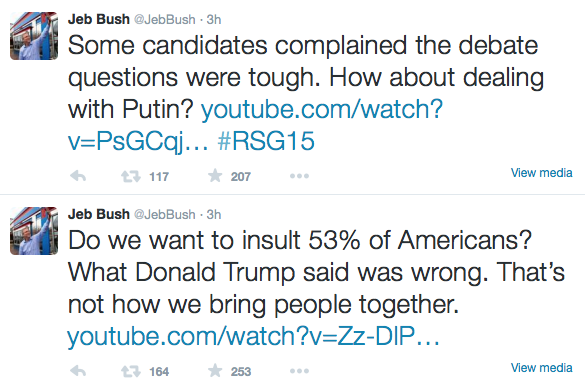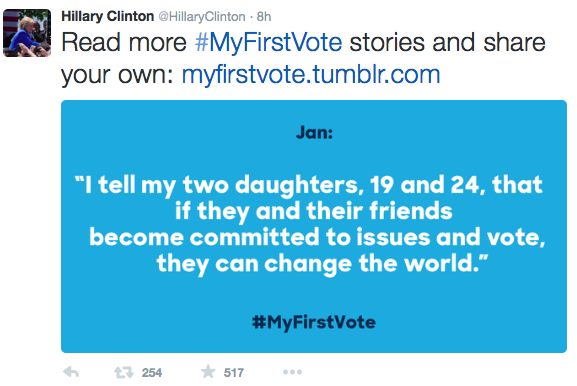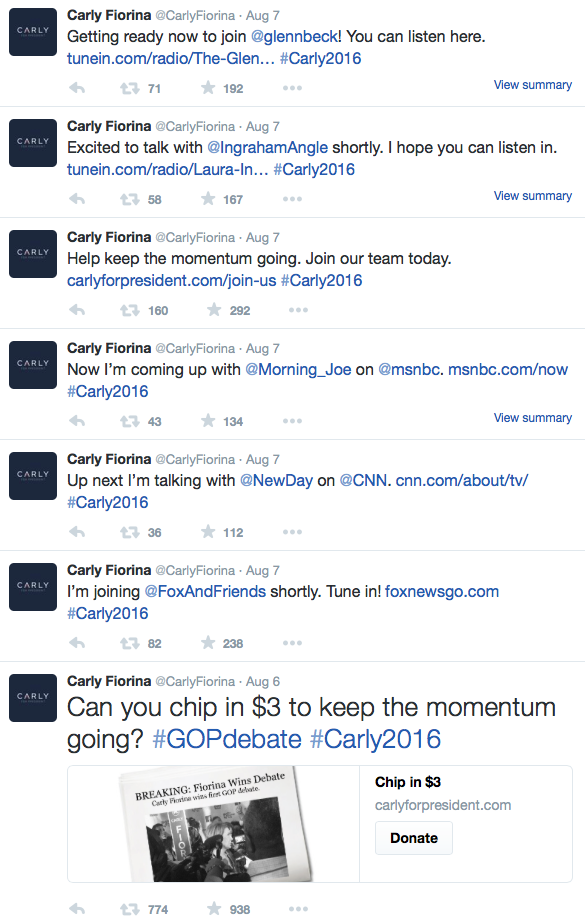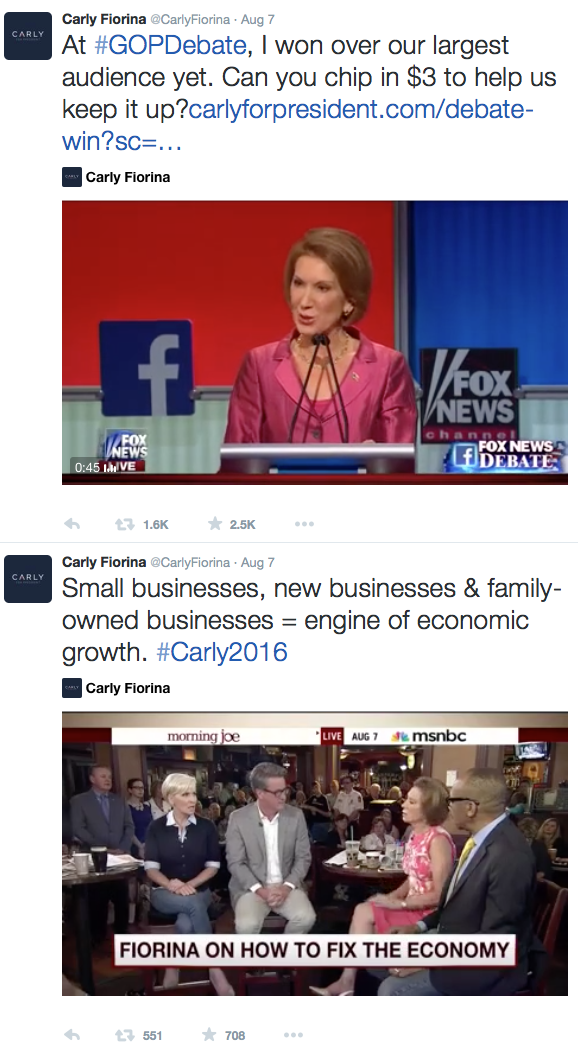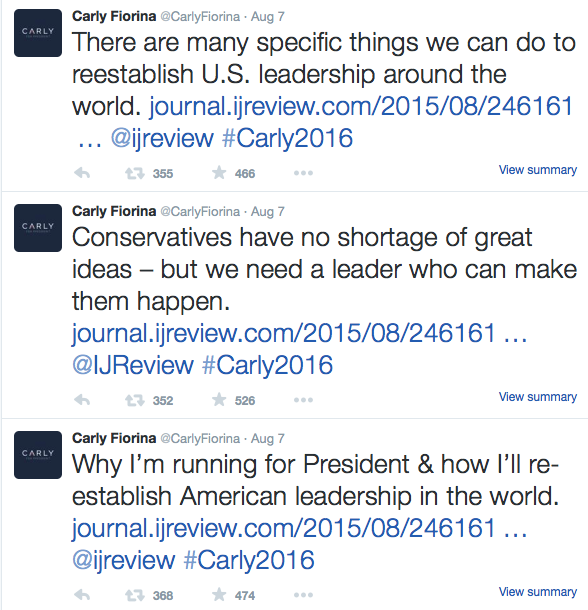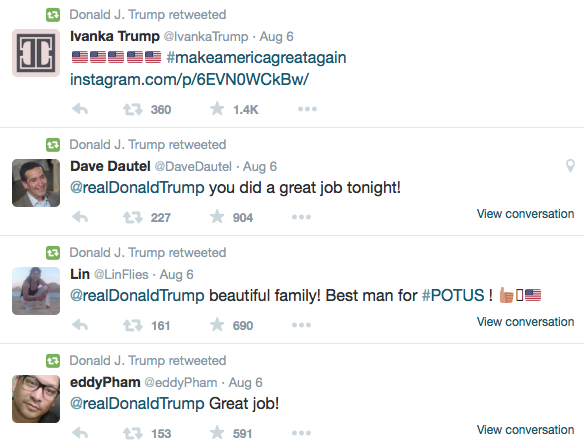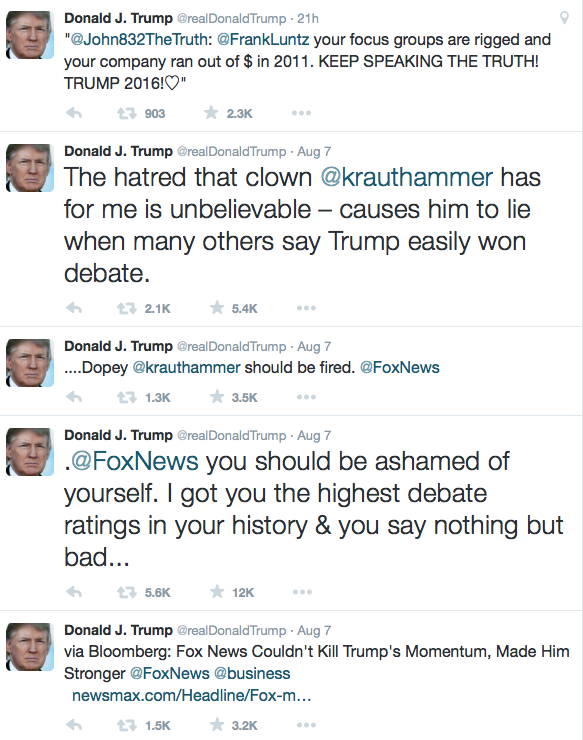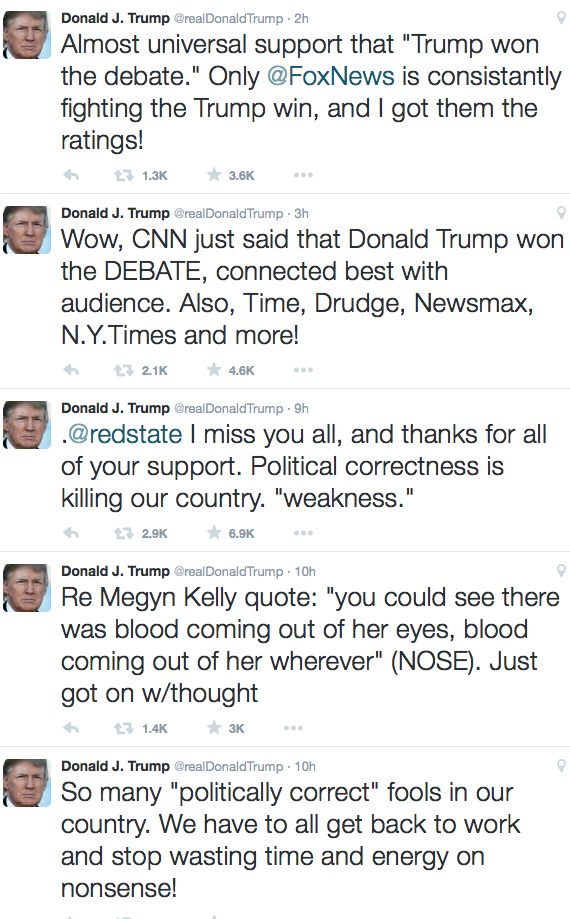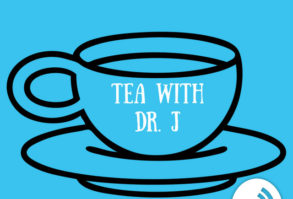The post GOP Debate is somewhat better than the debate itself. As I’ve monitored the Twitter feed for selected candidates–I have found that most candidates are on point with sending clear and consistent messages through Twitter–except for one candidate and that is Donald Trump. He is consistently not telling me about his campaign. I just see hyperboles and anger.
Even in Ancient Greece, Sophists believed language was powerful. George Lakoff explains in his book, The Political Mind,
Language can be used to change minds, which means it can change brains–permanently, for good or ill. It does not merely express emotions, it can change them; not merely arouse or quell them, but change the role of emotion in one’s life and the life of a nation. (p. 231)
The political power of words lies not primarily in their form–that is, in speech–or even in the meanings they are directly linked to, but in the totality of brain circuitry that activation can spread to: the frames, metaphors, prototypes, metonymies, and the entire systems of concepts. Words matter. They shape our politics–and our lives. (p. 241)
An American citizen checking a candidate’s Twitter feed should be able to see information about their campaign and their stance on the important campaign issues. A candidate’s Twitter feed is a quick glance at a candidate’s campaign. Twitter and even Facebook are easily accessible without a laptop or desktop computer. If a candidate is mentioned and a smart phone is nearby, a social media feed may be the candidate’s first impression to the potential supporter.
Aristotle
First, lets address what Aristotle said in his work Politics:
Now, that man is more of a political animal than bees or any other gregarious animals is evident. Nature, as we often say, makes nothing in vain, and man is the only animal whom she has endowed with the gift of speech. And whereas mere voice is but an indication of pleasure or pain, and therefore found in other animals (for their nature attains to the perception of pleasure and pain and the intimation of them to one another, and no further), the power of speech is intended to set forth the expedient and the inexpeident, and therefore likewise the just and the unjust. And it is a characteristic of man that he alone has any sense of good and evil, of just and unjust, and the like, and the association of living beings who have this sense makes a family and a state. (1253.a.1)
Yes, we are political animals and we have been given the gift of speech. As Americans, our voices are louder than ever before thanks to social media. When choosing leaders, speech is important. Language is powerful. How we use language online and offline can show the true character of a person.
Aristotle, in his work, Rhetoric, says there are three modes to persuasion:
The first kind depends on the personal character of the speaker; the second on putting the audience into a certain frame of mind; the third on the proof, or apparent proof, provided by the words of the speech itself…. The man who is to be in command of them must, it is clear, be able to (1) to reason logically, (2) to understand human character and goodness in their various forms, and (3) to understand the emotions– that is, to name them and describe them, to know their causes and the way in which they are excited. (1356.a.1)
You will find ethos, pathos, and logos in all of the candidate’s Tweets below. Some you’ll find one more than another. Either way, when assessing candidates you may want to evaluate by looking at how their campaign is framing each candidate. Twitter is a very good example because it’s text driven by the campaign with no media middleman.
The Tweets
I chose campaign tweets from Hillary Clinton, Jeb Bush, Carly Fiornia, and Donald Trump. Clinton, Bush and Trump have the highest poll numbers and Carly Fiornia won the Happy Hour debate. Carly also has been one of the most talked about candidates in the news. I wanted to see their tweets after a debate. Did they push harder for Americans to get to know them? Twitter could be a potential supporter’s first impression of a candidate post debate.
Below is the number of tweets since the debate on August 6. I collected these tweets on August 8 at 2:50 pm.
- Jeb Bush: 14 Tweets
- Hillary Clinton: 12 Tweets
- Carly Fiornia: 19 Tweets
- Donald Trump: 71 Tweets
Jeb Bush (Career politician, family name produced 2 presidents)
Jeb’s first tweet after the debate is to quote a follower who says she’s voting for Jeb.
Jeb is shown campaigning in New Hampshire.
Responds to an immigration issue.
And, Jeb called out Donald Trump tapping into the emotions of people who are angry at Trump.
The tweet about dealing with Putin reminds me of Hillary Clinton’s 2008 campaign commercial asking who would you want to answer the red phone? Jeb Bush is asking, who do you want dealing with Putin?
<you may have to refresh your browser to see the video below>
Hillary Clinton (former First Lady, senator and Secretary of State)
Marco Rubio pointed out during the debate that if you looked at the resumes of the candidates, Hillary Clinton would be the most qualified. But, that doesn’t mean a thing in Presidential campaigns. Choosing the best candidate depends on who people have the most confidence in. We all know people can look good on paper. They may even look good on Twitter.
Hillary’s campaign team tweeted during the debate. Even Hillary added a touch of humor to the night:
Hillary’s campaign tweeted about immigration:
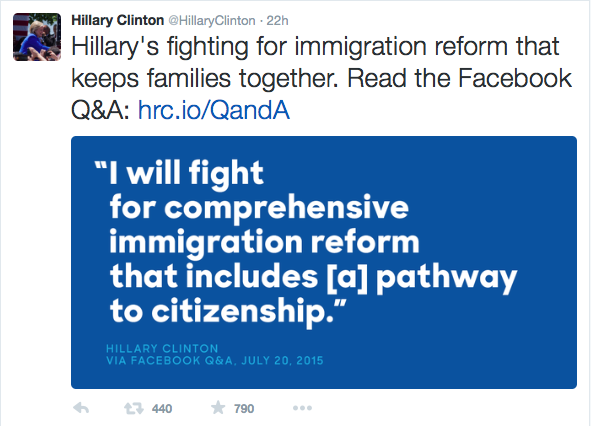 The tweet directs you to Hillary’s Facebook page.
The tweet directs you to Hillary’s Facebook page.
Then, Hillary’s campaign tweets about American’s first voting experience with a nifty graphic with the hashtag for others to join in on their Tumblr page.
Go Hillary goes International:
Hillary’s feed is very citizen focused. She focuses on her supporters and their contribution, whether it’s sharing their story or creating opportunities for Question and Answer sessions. Her campaign also retweets:
Her Twitter feed guides you to more information as well as creating quick bites of information in well designed graphics.
Carly Fiorina (Businesswoman turned politician)
Carly is definitely seizing this moment to make a name for herself in this campaign. With a clear win during the Happy Hour debate on August 6, she tweeted her media opportunities for supporters to watch:
I also worry when candidates use the word momentum. I’m not a fan of reminding people you’re behind. I would rephrase this tweet to say: “Chip in $3 to support #Carly2016.” Don’t make it a question… make the tweet more motivating without using the words “Can you” chip in $3. I would actually have made it a $1.
Then she adds video clips:
In both videos she discusses why she is running and her plans.
Carly talks about reestablishing leadership. Here she is establishing her ethos with people unfamiliar with her:
The links in the tweets leads to a detalied statement on how she plans to reestablish the leadership in America.
Then, Carly tweets about Donald Trump with these two tweets. She tapping into the anger of the crowd who despises Trump’s tweets about Megyn Kelly.
Donald Trump (Businessman and celebrity)
Donald had 71 tweets and many of those were retweets.
While the above candidates were moving forward from the debate–Donald Trump kept rehashing and bashing.
As I went through his post debate tweets, all I found were retweets praising him and/or helping him bash FOX News. I will say, I did not learn much about the plan he has for America. I know many Americans find his harsh rhetoric refreshing. I am all for not always being politically correct, but his tweets didn’t lead me to find out much about him, the politician. As I read his tweets I saw a desperate attempt to show the reader he’s popular in the polls, but those were limited. He then bashed people who didn’t agree he won the debate. If people disagreed with him he uses such words as clowns, fools, etc to lash out at critics. Trump is shaking up the GOP party and the overall election with bombastic language. During the debate he was the clear winner because he was able to gain more air time than any other candidate. But, as a rhetorician, I wonder if he can keep his momentum with such language and lack of logos in his arguments.
His first two tweets after the debate shared a quick poll by The Drudge Report and then a picture with his family.

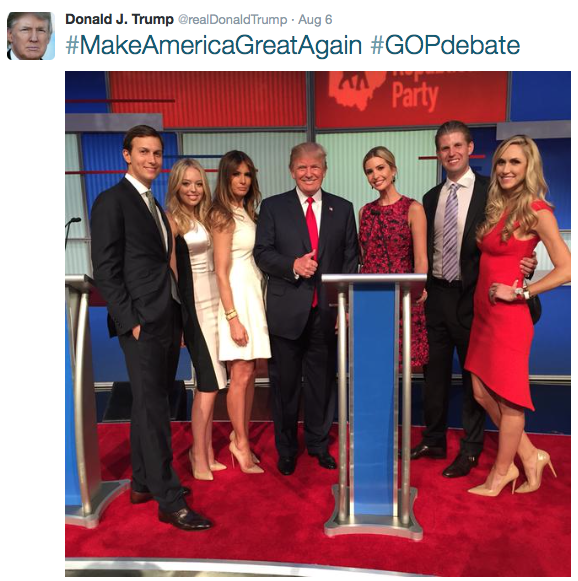
Then a lot of retweets praising Donald Trump.
Trump won’t move forward from the debate, but instead decides to attack Megyn Kelly and Frank Luntz. Yes, he may have been targeted by Fox News, but he also could choose how to react to the situation. He chose to name call and decided to call the focus group a dumb panel. If he listened to the focus group–the focus group said they walked in supporting him, but changed their mind due to his rhetorical choices during the debate. I’ve heard many people voice the same concerns–and they are not a part of focus groups or related to the media.
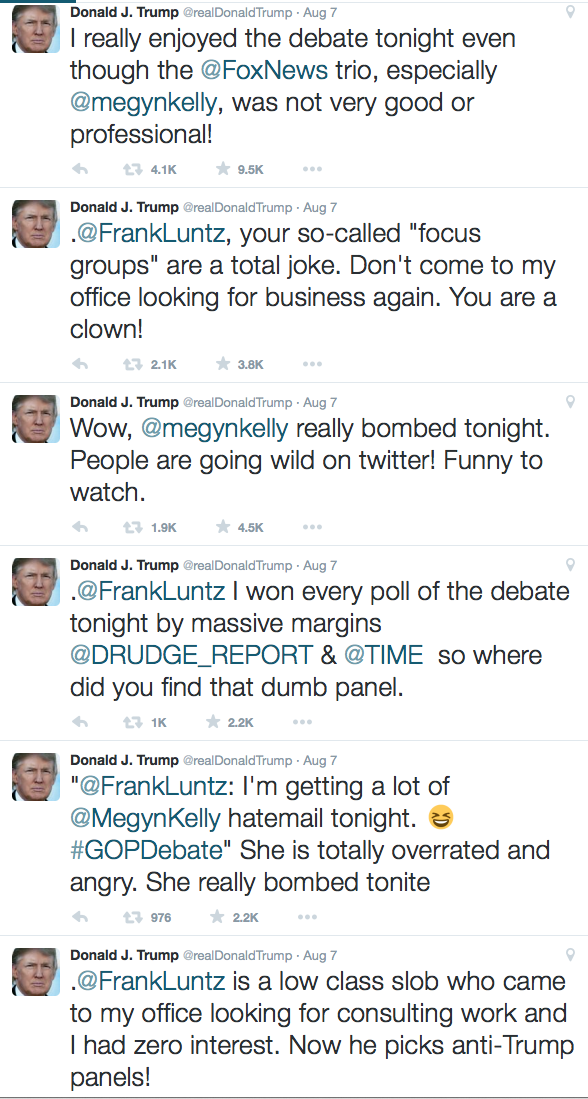
And, when the focus group criticized Donald Trump he decided it was all a lie. Within the tweets below Trump says nothing about his plan for America or talks about campaigning. He does retweet and focuses on ratings and calling people names such as clown and dopey. These are great tweets to gain attention and to spur emotion within Trump’s supporters.
Then he decides to discuss how many people believe he won the debate. He also calls people who criticize his name calling as “politically correct” fools, which could alienate some voters if he is serious about campaigning.
Trump taps into the anger of Americans through his post debate tweets to provoke emotional responses from his supporters. Trump understands his audience who seems to be responding to these outbursts. But, can his lack of ethos and lack of logos win Trump the election? Trump earned credibility as a businessman, but he still needs to earn credibility within politics. I doubt Putin or any other controversial leader will allow anyone to call them dopey, fool or clown.
The other three candidates have chosen to concentrate on the issues. When you visit Jeb’s, Hillary’s, and Carly’s Twitter page you understand their stance on the issues. You also see how they focus on their supporters. Their emotional appeals are not about attacking groups of people, but helping voters understand their stance on the issues. Two of the candidates addressed Trump’s comments on their Twitter feed. I’m not opposed to a strong in your face type of candidate to get things done, but Donald’s rhetorical choices are filled with too strong of pathos.
Aristotle found pathos useful. And as Jay Heinrichs says, ” You can persuade someone logically, but… getting him out of his chair to act on it takes something more combustible.” (Thank you for Arguing, p. 40).
When a citizen examines a candidate’s website, speech, Twitter feed, Facebook feed, etc– citizens should evaluate a candidate using Aristotle’s three qualities of persuasive ethos:
Jay Heinrich’s explains simply that those are:
Virtue–the audience believes you share their values
Practical Wisdom–or street smarts–you appear to know the right thing to do on every occasion.
Selflessness, or disinterest— the audience’s interest seems to be your sole concern.
(Thank you for Arguing, p. 56).
When you evaluate each candidate, you may ask yourself if you see these three qualities in the candidates’s language.
And, as Trump keeps tapping into the anger in America–he’s really tapping into the audience’s–
…experience and expectation–what your audience believes has happened, or will take place in the future. The more vividly you give the audience the sensations of an experience, the greater the emotion can arouse…. When you argue emotionally, speak simply. ( Jay Heinrichs, Thank you for Arguing, p. 80 & 82)
Trump does speak simply. He uses the words such as stupid, fool, and clown to describe issues and people. Trump is said to be “stirring the pot” and I believe that is true. He is motivating an audience to act whether it is to tweet support, to spar with him, or to even ban him from events. He is creating a stir. Trump is credited for bringing in 24 million viewers to the first GOP debate, which made it the most watched cable news program ever. Yes, Trump is motivating a crowd. But, how long will it last with no substantive information? How long will his momentum last? How long will citizens support bombastic hyperboles and unapologetic attitude?
The rhetorical choices a candidate makes now can make or break their campaign. I’m not sure the controversy surrounding Trump’s campaign can survive much longer, especially while verbally attacking a woman. Unfortunately, if an audience can stick by a show called Here Comes Honey Boo Boo and make a successful franchise out of Real Housewives then I believe anything is possible for Donald Trump. The in your face, attack and react world is here. The race for the Presidency has changed drastically. People are confusing politics with entertainment. The criteria for choosing a president is not the same as it was 20 years ago. I saw a tweet in passing that said they wished Americans could vote one candidate off the debate stage–such as they do on American Idol or Survivor. One day… one day…



